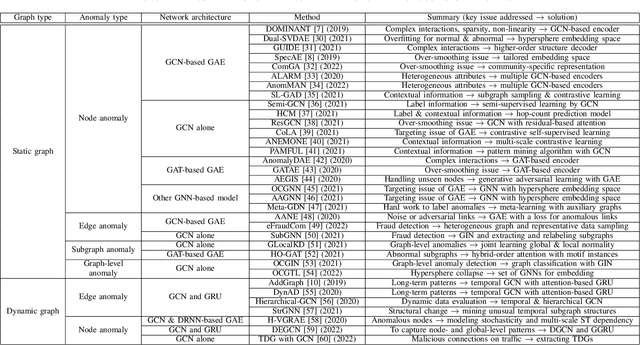Graph Anomaly Detection with Graph Neural Networks: Current Status and Challenges
Paper and Code
Oct 04, 2022


Graphs are used widely to model complex systems, and detecting anomalies in a graph is an important task in the analysis of complex systems. Graph anomalies are patterns in a graph that do not conform to normal patterns expected of the attributes and/or structures of the graph. In recent years, graph neural networks (GNNs) have been studied extensively and have successfully performed difficult machine learning tasks in node classification, link prediction, and graph classification thanks to the highly expressive capability via message passing in effectively learning graph representations. To solve the graph anomaly detection problem, GNN-based methods leverage information about the graph attributes (or features) and/or structures to learn to score anomalies appropriately. In this survey, we review the recent advances made in detecting graph anomalies using GNN models. Specifically, we summarize GNN-based methods according to the graph type (i.e., static and dynamic), the anomaly type (i.e., node, edge, subgraph, and whole graph), and the network architecture (e.g., graph autoencoder, graph convolutional network). To the best of our knowledge, this survey is the first comprehensive review of graph anomaly detection methods based on GNNs.
 Add to Chrome
Add to Chrome Add to Firefox
Add to Firefox Add to Edge
Add to Edge